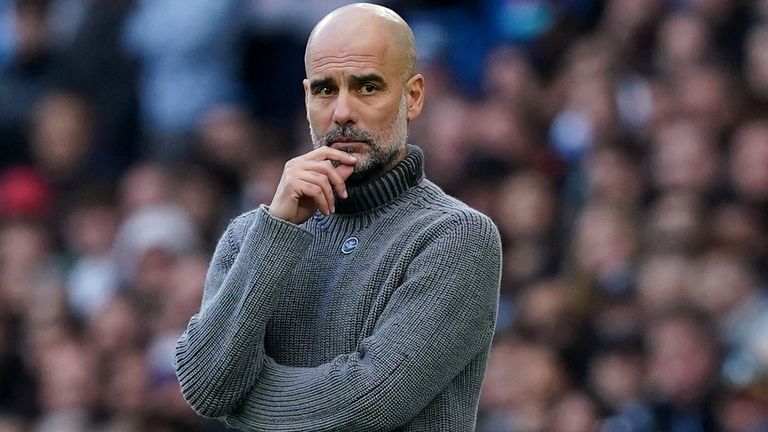Arrigo Sacchi, the famous Italian coach who revolutionized Italian football suggested that the game of the future will not just be a team-centred game but a universal game. For him the game of the future will require positional freedom andvariability, with interchangeable footballers capable of operating wherever required. Sacchi has always been a believer that the team is more important than the individual and the modern game has become testament to this belief. He also believes that as the team becomes more unified, it can move towards one of universality. In the new book from Matthew Whitehouse this concept of universality as well as its viability as a blueprint for the future game.
The concept of universality has been around for decades. It’s simple really; everyone has the same responsibility, to attack and defend. Players should be capable of fitting into different positions and carrying out that specific job. The basis for each player is the same, to be part of the team at all times and to fit into any position which is required of them.
However with coaches like Guardiola, van Gaal (at Manchester United) and Marcelo Bielsa (at Marseille) influencing players as well as future coaches it appears that we may be witnessing a genuine era of universality. With the level of athleticism, the quality of pitches, and an ever-growing intelligence from players and coaches – universality really canbecome a reality.
This trend did not look likely during the 2000’s, when the game became obsessed with ‘specialists’. At this time the game was looking rigid and inflexible. It had evolved against Sacchi’s philosophy and vision. In coaches like Jose Mourinho, the anti-thesis to a universal type style, the game became tactically rigid and coaches like Mourinho and Benitez would succeed playing this restrictive game. However when Barcelona and Spain started to climb to the top of world football the game of the 21st century would start to change.
Although Sacchi found the 21st century a frustrating time – as his philosophy was seemingly ignored in favour of the specialist – the truth is that it his beliefs now define the modern game, and importantly appear to be the blueprint of the future. With the success of the German national team as well as the emergence of Pep Guardiola’s philosophy we now see coaches and team seeking to move towards universality.
And along with an evident shift in the development of more universal-type players through European youth academies points to the possibility that (with the right coach and players) universality could become a realistic achievement.
Lessons from the Dutch
The rise of German universality
However, there is already a nation ahead of the rest when it comes to preparing for the future game, and van Gaal can be said to have had an influence on the philosophy and development of certain players. While at Bayern he begin to lay down the ideas of totalfootball and help build the foundations of one of the most complete sides in football history.
During his time at the club van Gaal instilled his philosophy at the club and had a significant impact on the development of players such as Bastian Schweinsteiger and Philipp Lahm, as well as help nurture and develop the young talent of Thomas Müller, Holger Badstuber and David Alaba. His trust in youth and belief in their willingness to learn and develop helped give Bayern an identity and a style and while he wasn’t given the time to push the philosophy through, his influence on the present German national team, as well as the Bayern team we see today is clear.
What Germany and Bayern have achieved is an incredible feat of innovation, planning and patience. The continual molding and evolution of their youth project for over a decade has taken them to a stage where their vision has become a reality. Deserved world champions on the international stage, playing some of the most fluid and tactically astute football seen at international level while possessing a squad – not just a team – of dynamic, skillful and intelligent players. And as well as their versatility, both tactically as a group and individually as players, it was Germany’s ability to play as a cohesive group which meant success was forthcoming. All these factors point to the development of a nation and a club in Bayern, striving and achieving universality.
As the book covers in detail, what Germany are showing us is that every position has had to evolve in order to meet the needs of the modern and future game. Manuel Neuer has taken goalkeeping and the sweeper role to new levels. Jerome Boateng and Mats Hummels are the modern defender; akin to the modern libero. The arrival of Xabi Alonso is evidence that Guardiola is seeking a true libero who can move between defence and midfield, similar to what Rijkaard once did for Ajax under van Gaal.
In Philipp Lahm we see perhaps the most complete player in the German team; his defensive excellence allied with his technical quality when in possession has made him a key and influential player for Bayern and Germany. What is significant is that in Lahm we see a world class player who is capable of playing in multiple positions, he is one of the new breed of players who can be regarded as ‘complete’, a superb multi-functional player who is showing us where the game is moving… towards universality.
In midfield we see dynamic, complete players in Schwinesteiger, Kroos and Khedria (and Lahm), players who can defend, attack and control the tempo. They are proof of the move away from ‘specialists’ and the emergence of complete midfielders. Germany show that the playmaker is now more dynamic and complete, and this can be seen in the quality and versatility of Mario Götze and Thiago Alcantara at Bayern, players who are capable of playing wide, central or up top.
And then you have a player like Thomas Müller, a player who is evidence of the modern forward; dynamic, flexible and mobile in order to suit the needs of the modern game. As the role of the forward has had to evolve Mülleris evidence of the type of player the modern forward must be. Both Germany and Bayern had no place for the rigid Mario Gomez type forward anymore, what they sought was movement and fluidity, as well as intelligence and skill, and this is what Müller offers.
It is evident that Germany and Bayern have embraced the importance of positional movement and fluidity. The forward has He must be a goalscorer, a playmaker, a target man and the first line of defence. Complete is the word.
Is this skill set now a requirement for every player? Are we seeing a move towards a team full of this type of player? Are Germany and Bayern showing us that football is moving to universality? That the modern player is required to do and be everything? It appears that under the leadership and vision of Pep Guardiola this the future for German football.
The Architect of the Future Game
As we’ve seen – the game of football is always in a state of flux. Sometimes this is slow, with a sense of calm and familiarity across the game, and then – all of a sudden – a wave of something new affects this balance and calm, a new idea or style is thrown up which poses new thinking and fresh problems. Guardiola did this at Barca; he re-shaped the modern game and asked questions of every coach, asking them to re-evaluate how they saw and played the game. This accelerated football’s evolution.
In hiring Guardiola as their coach Barcelona were bringing back the ideas of Cruyff. The pivot was vital for the ‘system’ to work. Therefore Guardiola sought a player who could do what he did twenty years previously. In Xavi and Busquets he brought back the so called ‘extinct’-type player and made them an example of what a modern midfielder should be. He would stick with the philosophies which he embraced as a young player and, in doing so, would change the modern game. Football’s cycle in action once more.
Pep Guardiola instilled his very own playing style into Barcelona. Xavi, Iniesta, Messi and Busquets, all Guardiola-type players, would dominate the game; they would be shining examples of the value of intelligent ‘technicians’ in midfield. A type of player and style of football, which was once considered extinct (by Guardiola himsef) was now seen as the best way to play. It is not too far reaching to say that – in the space of a season – Guardiola changed how football was seen. The midfield battle became not about being ‘physical’ but about intelligence, movement and possession.
From 2009 to 2012 the ‘Barcelona style’ became ‘the way’ to play the game. Possession-based football that embraced small technicians over physical giants and athletes was a dramatic change since the turn of the century. Guardiola impressively managed to change the mindset of the footballing world. ‘Tiki-taka’ was the model on which football’s future would be built. Movement, rotation, speed of play, and tactical intelligence became synonymous with Barca and became a blueprint to replicate.
His level of commitment, focus and determination transformed a group of players in that summer of 2008. A squad clearly possessing quality, yet lacking guidance and motivation, was turned them into one of the greatest sides in world football, perhaps ever. Guardiola proved his managerial talents by taking good players and turning them into world class ones. He made Barcelona a unified team, functioning as one.
Due to their success and dominance Barcelona became a blueprint for the modern game. The physicality and strength of the decade before Guardiola was now seen as slow and rigid against a style of football which was sharp, quick, and frighteningly efficient.
Germany’s coach Joachim Löw, a man who has sought to embrace the philosophies of Guardiola during his time as Germany’s national coach, spoke of his admiration as to how Guardiola has changed the modern game, “What Guardiola has done to some extent is challenge some of the truisms and clichés of football, such as defending is about sitting deep and denying space for teams, Barcelona have done the opposite, they’ve gone and looked for teams, defended with possession which teams perhaps haven’t done before.”
Now, of course Guardiola, like most visionaries and revolutionaries took the philosophy to new levels and this was, maybe, too far for many of his players. He sought to push the limits and boundaries of his philosophy and of his players. He sought near complete totalfootball in the look of Cruyff and van Gaal’s desired 3-4-3, yet struggled to find the right ‘balance’ in the side. He could not perfect ‘the next step’, one which appeared to be his desire for universality.
His final season at Barcelona was perhaps a season too far for him, with his team evidently looking fatigued and starting to lose focus. The weight of being the best appeared to be taking its toll on them and him as a coach.
During his four years as Barca’s head coach Guardiola pointed us to the future game. He spurred many coaches and players to replicate the Barca philosophy (this happened across all levels of the game from youth to senior). This is what revolutionaries achieve, they inspire and educate a new way of being and ultimately dictate where the future is going. It was a footballing revolution. But perhaps he needed another club, another nation, another type of player, to achieve his vision and make universality a reality?
When Guardiola at Bayern arrived in the summer of 2013 he was inheriting a side which had just dominated domestic and European football. Unlike the conditions he found in 2008 when he took over Rijkaard, this was a group of players at the peak of their game. His task was to develop a team which had broken records during the previous season and which had played in a manner which many believed it was ‘not possible’ to improve upon. It was never going to be an easy task.
The expectations on Guardiola were not only to defend the Champions League (which hadn’t been done since Sacchi’s Milan in 1990) but to improve on the team’s performances and style. Many were sceptical of what he would do and achieve at Bayern. Many questioned how one could improve on what Heynckes had accomplished. In terms of trophies perhaps it was not possible. And the dramatic defeat in the semi-final against Real Madrid led to wide criticism regarding Guardiola’s style. Some even said it was ‘the death of tiki-taka.’
Although it was a setback for the club it was evident, based on the season as a whole, that Guardiola was taking Bayern – and German football too – forward, especially tactically. Germany’s World Cup success has much to thank Guardiola for, as he has brought new ideas on how to approach games for his Bayern players and for Lowe, who has evidently sought to learn from Guardiola.
And what is it which defines Germany’s success? What was it which made Barcelona so dominant? Well it’s simple, for Guradiola the key to his style being effective is to use players with great football intelligence. Hence the emergence of Philipp Lahm in the centre of midfield. For many he is the world’s best full back, yet for Guardiola Lahm is a footballgenius, ‘the most intelligent player he has ever worked with’ (some compliment when you consider he worked with Xavi, Iniesta, Busquets and Messi). Therefore why put a player with such intellect on the wings? For Guardiola Lahm is a player who needs to play centrally and be a nucleus to the side. And if anyone knows how to play the pivot role it is Guardiola. Many thought it was foolish to move Lahm around; an unnecessary and problematic and move. Yet for Guardiola, it was not foolish but logical.
Guardiola is teaching us is that the future game is all about intelligence. Reactive players will not work in the future, the skills of anticipation and perception as well as mastering space and time will become the hallmark of football’s future.
The project at Barcelona was magnificent yet perhaps fell short of Guardiola’s overall vision. At Bayern he has been given another chance with arguably a greater, more varied side. Bayern personify a mix of physical athletes with strength, skill, speed and intelligence. It is a ‘perfect mix’. Bayern’s owners appear to have got what they wished for, not only positive results but a man who will make them ‘iconic’, who will create the aforementioned ‘legacy’.
Bayern’s play under Guardiola could be said to rival that of his Barca side. Yet, at the same time, his Bayern squad can be argued to be faster, more physical, and more universal than even Barca were. Germany proved this at the World Cup, blending physically strong athletes with skilful, intelligent and versatile players. They showed us the future game.
It is not inconceivable to say that Pep Guardiola is the most visionary coach and thinker of his generation. His education in football as a player and coach has given him the cultural exposure and understanding to become the new (revolutionary) master of the totalfootball philosophy.
Modern progressive coaches see the potential that the modern player provides. They see that positional fluidity and versatility not only help their sides to succeed and entertain, but also to push the boundaries of the game. What Guardiola and other visionaries, such as Marco Bielsa and van Gaal are showing us, as coaches and students of the game, is that the future of football is not fixed but fluid. These coaches have shown us new tactical concepts and are now leading us into a new and exciting period of style and formations. It is evident that a world of universality beckons. The question is, are we preparing our young players for the future game?











